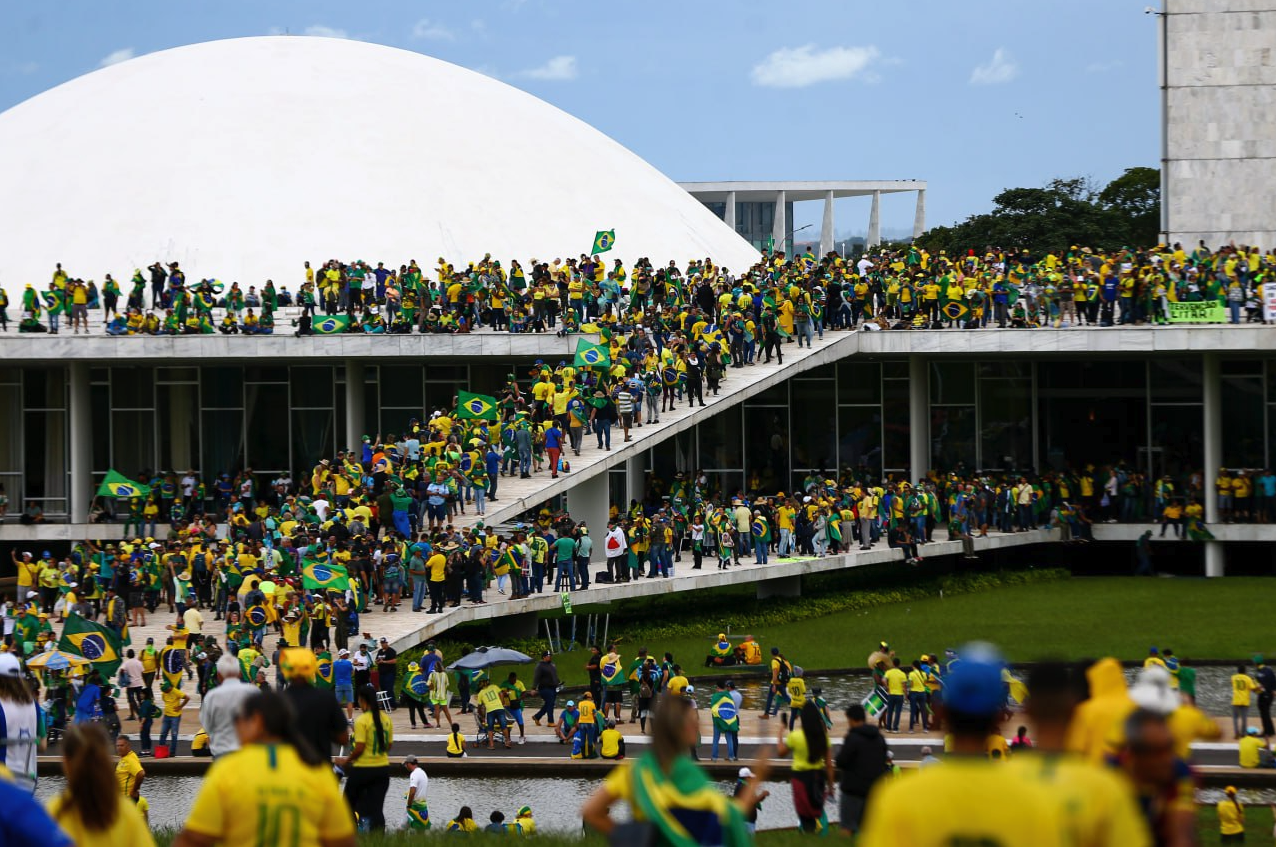In May 2024, it became known that several people convicted or investigated for participating in the anti-democratic acts of January 8, 2023, had managed to illegally leave Brazil, heading for neighboring countries. More recently, the Argentine government announced that at least 65 of them had requested refuge in the country, and that their requests would be analyzed on a case-by-case basis by the National Commission for Refugees (CONARE).
Although Brazil is preparing extradition requests for these fugitives, Argentine law and international standards state that nothing can be done until CONARE has decided on their refugee applications.
Why did Argentina accept the refuge requests from the Brazilians?
In general, countries manage migration within their territories as they see fit. However, the institute of refuge is an exception and is very well regulated by international instruments. Among them is the Convention Relating to the Status of Refugees (1951), ratified by 146 countries, including Argentina (which ratified it in 1961). The document establishes the criteria for recognizing refugee status, as well as the principle of “non-refoulement”, which prohibits countries from returning refugees and asylum seekers to situations of persecution or serious human rights violations.
It is therefore necessary for countries to consider and decide on refugee claims before taking any further action. This explains, in part, why the Argentine government has accepted refugee claims almost automatically and maintains that no extradition will take place before they have been resolved. As applicants, these Brazilians receive an identity document, renewable every 90 days, access to public services and work, and can travel outside Argentina with authorization from CONARE.
How will the applications be analyzed?
CONARE, which will review the applications, is a commission made up of representatives of the Argentine government and other organizations. Its format is very similar to that which exists in other Latin American countries, including Brazil itself, since in past decades this model was widely disseminated in the region by the UN Refugee Agency (UNHCR).
Although Brazilian applicants have already detailed in their application forms what they believe to be the grounds for their refugee claim, Argentine law requires that they be summoned for eligibility interviews. During these interviews, CONARE technical officers will question the reasons for fleeing Brazil, as well as the credibility of the accounts given by the applicants. These officers will then cross-check the information provided by the applicants with other sources (including internal investigation), verify its veracity and issue a technical opinion, which will be voted on by the Commission in plenary session. The voting members of CONARE are the National Institute against Discrimination, Xenophobia and Racism (INADI) and representatives of four government departments: Interior, Foreign Affairs, Justice and Human Capital. Cases are decided by simple majority.
It is worth remembering that there is no deadline for Brazilians to be summoned for their eligibility interviews, let alone for CONARE to decide on their cases. According to UNHCR, resolution of cases in the country can take “two to five years, or more.” If an application is rejected, there are possibilities to appeal in two more instances.
What will the outcome be?
One of the reasons for recognizing refugee status under Argentine law and the 1951 Convention is a well-founded fear of persecution for political opinions, which some say is the case for Brazilians seeking refuge in Argentina. However, the fact that they are fleeing convictions or investigations related to crimes, especially those of a political nature, does not necessarily make them victims of political persecution. In these cases, it is necessary, among other things, to determine whether the investigations and sanctions to which the applicants were subjected in their country of origin were carried out in accordance with the law, international human rights standards and fairly. Only clear indications that the applicants have been (or may be) victims of arbitrary legal treatment or excessive punishment due to their political opinions should lead to their applications being considered. So far, international observers monitoring the protection of human rights in Brazil have not noted any problems with the investigations and sentences handed down against those involved on January 8.
However, this does not mean that CONARE’s position on these applications can be taken for granted. Although the Commission’s eligibility officers issue technical opinions on the applications, ministerial representatives vote on them.
Thus, although the spokesman for the Argentine presidency, Manuel Adorni, has argued that the decision on these requests is outside the government’s competence, it will largely be the representatives of the Milei administration who will decide on them. Since taking office, the Milei administration has replaced at least three voting members of CONARE. New representatives have been appointed from the portfolios of Foreign Affairs, Justice and Interior, the latter as chair of the Commission. Thus, in addition to influencing the agenda of plenary sessions (being able to prioritize cases), representatives of the Milei government can easily obtain a simple majority during deliberations.
It is not uncommon for countries to use refuge as a foreign policy tool, seeking to delegitimize or assist foreign governments by recognizing (or not) their nationals as refugees. Take as an example the case of the Bolsonaro government that favored the recognition of Venezuelans as refugees.
Despite the pessimism and the cooling of Argentine-Brazilian relations since Milei took office, the leaders of the San Martín Palace and the Itamaraty have managed to maintain a certain cordiality and functionality. What remains to be seen is whether Milei will abandon this in favor of his private agenda. Meanwhile, Brazilian diplomacy should continue to promote greater understanding with the Argentine president and encourage greater celerity in the cases being processed at CONARE.
*Translated by Janaína Ruviaro da Silva from the original in Spanish.













